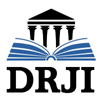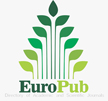THE USE OF LESSON PLAN GUIDELINES BASED ON LEARNING MODELS TO FACILITATE VOCATIONAL TEACHERS TO DEVELOP COMPETENCY INDICATORS
Abstract
Keywords
Full Text:
PDFReferences
Ana, A. (2020). Trends in expert system development: A practicum content analysis in vocational education for over grow pandemic learning problems. Indonesian Journal of Science and Technology, 5(2), 71-85.
Chuntala, A. D. W. (2019). Scientific approach in 21st century learning in Indonesian language learning vocational school of pharmacy. International Journal of Active Learning, 4(2), 71-77.
Handayani, M. N., Ali, M., Wahyudin, D., &Mukhidin. (2020). Industry perceptions on the need of green skills in agribusiness vocational graduates. Journal of Technical Education and Training, 12(2), 24-33.
Harackiewicz, J. M., Smith, J. L., &Priniski, S. J. (2016). Interest matters: The importance of promoting interest in education. Policy Insights from the Behavioral and Brain Sciences, 3(2), 220-227.
Heidari, M. (2015). Iranian EFL Teachers’ Attitudes towards lesson planning based on their gender. JournalAdvances in Language and Literary Studies, 6(4), 2001-2004.
Ichsan, F. N., & Hadiyanto, H. (2020). Implementasi perencanaan pendidikan dalam meningkatkan karakter bangsa melalui penguatan pelaksanaan kurikulum. Jurnal Studi Guru dan Pembelajaran, 4(3), 541-551.
Kennedy, O. (2011). Philosophical and sociological overview of vocational technical education in Nigeria. International Journal of Academic Research in Business and Social Sciences, 1(1), 167-175.
Kintamani DH, I. (2012). Faktor-faktor yang berpengaruhterhadappengumpulan data pendidikan nonformal tidaktepatwaktu dan tidakberkualitas. Jurnal Pendidikan dan Kebudayaan, 18(3), 294-309.
Marks, M. J., & Fraley, R. C. (2007). The impact of social interaction on the sexual double standard. JournalSocial Influence, 2(1), 29-54.
Maryanti, R., Nandiyanto, A., Hufad, A., & Sunardi, S. (2021). Science education for students with special needs in Indonesia: From definition, systematic review, education system, to curriculum. Indonesian Journal of Community and Special Needs Education, 1(1), 1-8.
Octavianda, R. P., Rustaman, N. Y., &Sriyati, S. (2015). Student’s perception about assessment related with implementation of 2013 curriculum. Jurnal Pengajaran Matematika Dan Ilmu Pengetahuan Alam, 6(1), 191-210.
Patmanthara, S., & Hidayat, W. N. (2018). Improving vocational high school students digital literacy skill through blended learning model. Journal of Physics, 1028(1), 1-7.
Prihantoro, C. R. (2014). The perspective of curriculum in Indonesia on environmental education. International Journal of Research Studies in Education, 4(1), 77-83.
Rosina, H., Virgantina, V., Ayyash, Y., Dwiyanti, V., & Boonsong, S. (2021). Curriculum : Between vocational education and industrial needs. ASEAN Journal Of Science and Engineering Education, 1(2), 105-110.
Salajan, F. D., Nyachwaya, J. M., Hoffman, J. G., & Hill, B. D. (2016). Improving teacher candidates’ lesson planning competencies through peer review in a wiki environment. Teacher Educator Journal, 51(3), 185-210.
Suharno, Pambudi, N. A., & Harjanto, B. (2020). Vocational education in Indonesia: History, development, opportunities, and challenges. JournalChildren and Youth Services, 115(1), 11-20.
Suhartini, T. (2021). In house training (IHT) meningkatkan kompetensi guru dalam menyusun rpp merdeka belajar. JANACITTA, 4(1), 66-76.
Syed Ali, S. K. bin. (2014). Teachers planning and preparation of teaching resources and materials in the implementation of Form 4 Physical Education curriculum for physical fitness strand. Turkish Journal of Sport and Exercise, 16(1), 67-67.
Van De Heyde, V., &Siebrits, A. (2019). Students’ attitudes towards online pre-laboratory exercises for a physics extended curriculum programme. Journal in Science and Technological Education, 37(2), 168-192.
Zaghdoudi, C., Maalej, S., Saad, Y., &Bouchaala, M. (2010). A comparative study on the performance and environmental characteristics of R410A and R22 residential air conditioners for Tunisian Market. Journal of Environmental Science and Engineering, 4(12), 37-56.
Zuhaida, A. (2019). Integrative scientific madrasah in Indonesia: New developments in integrating science and religion in the learning processes. JurnalIlmiah Islam Futura, 18(1), 34-51.
DOI: https://doi.org/10.17509/jmee.v8i2.40805
Refbacks
- There are currently no refbacks.
Copyright (c) 2021 Journal of Mechanical Engineering Education

This work is licensed under a Creative Commons Attribution-ShareAlike 4.0 International License.
Indexed by:
ISSN: P 2356-4997
View My Stats
 Journal of Mechanical Engineering Education (Jurnal Pendidikan Teknik Mesin)
Journal of Mechanical Engineering Education (Jurnal Pendidikan Teknik Mesin)








